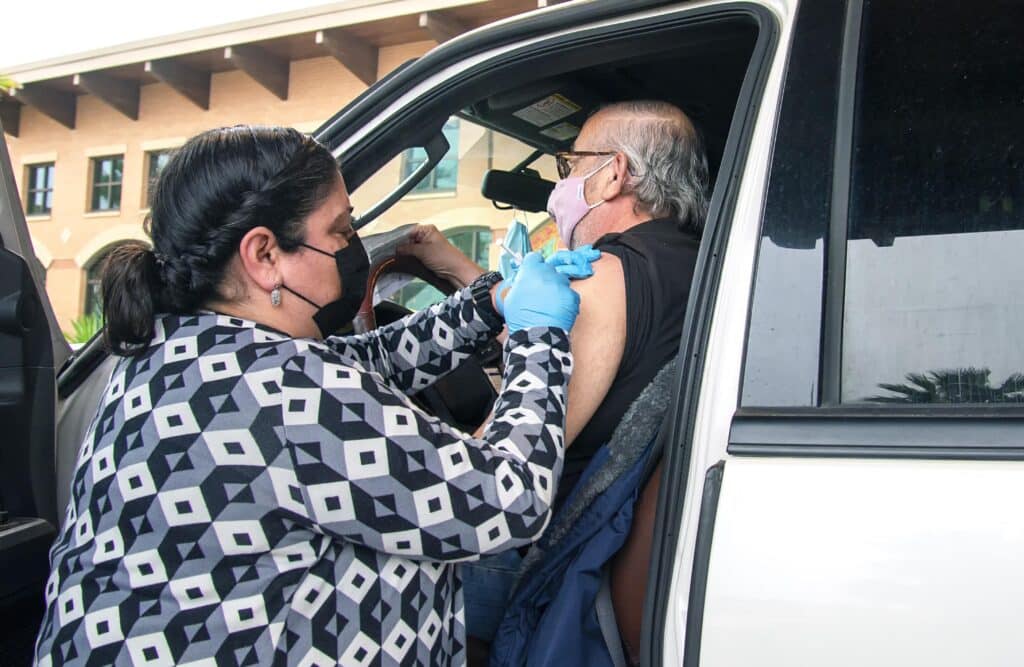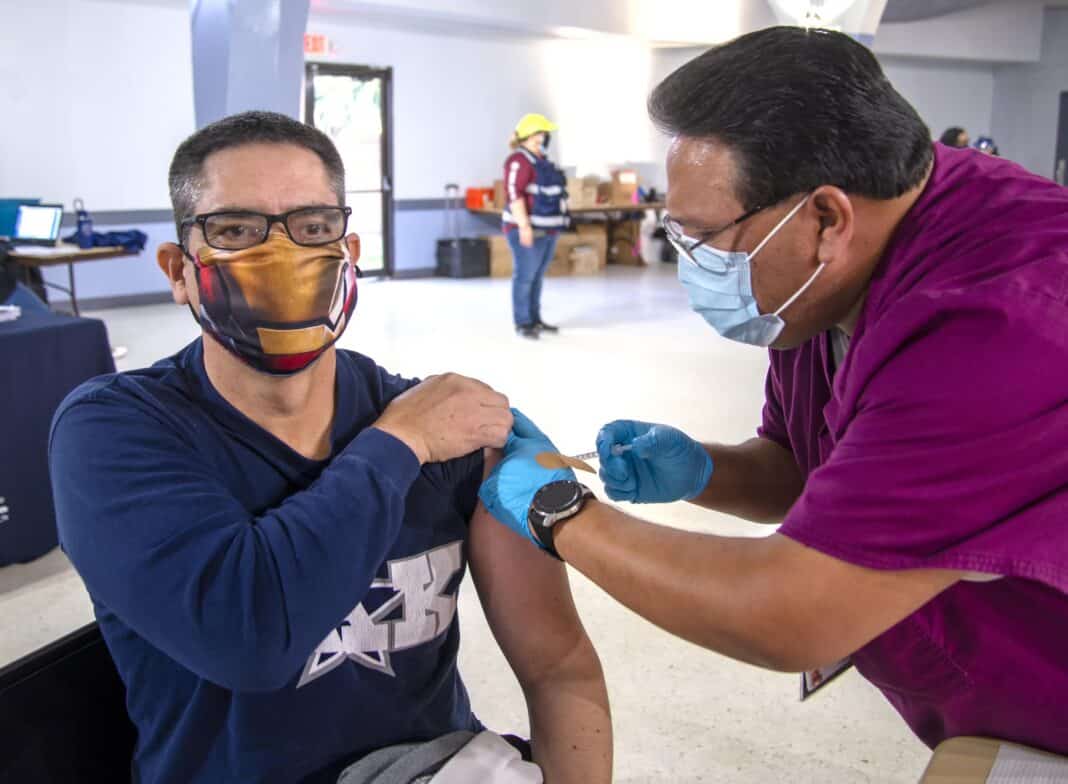BROWNSVILLE — Get vaccinated, experts say.
At this point in the progress of the pandemic, it’s crucial that everyone receive the COVID-19 vaccination to stop the proliferation of variants, according to experts.
“There have been studies done worldwide looking at the variants that exist in different locations,” said Dr. Christopher Romero, medical director at PanAmerican Clinical Research in Brownsville.
“There are well over 1,000 variants of the COVID-19 virus that have been identified to date,” Romero said. “Some of them get more press than others, and some locations may appear to have more variants coming out of that particular country than others, but it’s likely happening everywhere.”
He pointed out that some UK variants are more contagious than the regular strain in circulation.
“That can be dangerous because if it’s more contagious, it may mean more people are likely to be infected per each infected person,” Romero said. “It will spread through the community faster and then you have the risk of infecting people that are at higher risk of developing severe disease.”
Some variants are not only more contagious — they may have a higher mortality rate.
“That’s a scary thing,” Romero said. “It’s one thing to have something that spreads easier. It’s another thing to have a virus that is more deadly.”
The best way to shutter the development of more variants is to stop the spread of the main strain through vaccination, he said.
He pointed out the deadly mortality rates of other coronaviruses such as SARS in 2003 and MERS in 2012. The initial SARS mortality rate, he said, was 10 percent, much higher than COVID-19. MERS, which is closely related to COVID-19, had a fatality rate of about 30 percent.
COVID-19 has a fatality rate of less than 1 percent.
It’s biggest threat is not the mortality rate itself, but the devastating effects on some patients. Severe cases have suffered organ failure, extreme respiratory distress, strokes and heart attacks.
Even young people can suffer lasting physical problems after their recovery.
“I’d hate to see us progress into a situation where we have a more contagious, more deadly virus in circulation,” Romero said. “The way we prevent that from happening is to get as many people as possible vaccinated, preventing the spread, and thus preventing the evolution of the virus into something even worse.”
Dr. Ameer Hassan, head of neuroscience at Valley Baptist Medical Center, says the current COVID-19 vaccine offers no protection against the variants.
However, it can lessen the severity of the disease on patients.
“The good news is people like Moderna are working on that to try and bring in new versions of the vaccine that will be ready to go hopefully by summer or fall,” Hassan said. “This is going to become something that we’re constantly going to chase unfortunately. We’re going to have to keep making vaccines that are updated.”

Romero expressed admiration for the vaccines currently in use.
“The data on the vaccines available is extremely encouraging,” he said. “It’s a rarity to see a vaccine as protective as the Pfizer or Moderna and now the Johnson & Johnson vaccines. Giving 95 percent protection is phenomenal.”
He said the vaccine does produce some protection from the variants but not as much.
“It’s still protection kind of on par with what we’ve seen from the regular seasonal flu vaccine,” Romero said. “Most years the flu vaccine isn’t anywhere near 100 percent effective. But it is effective at reducing cases and also reducing severity.”




